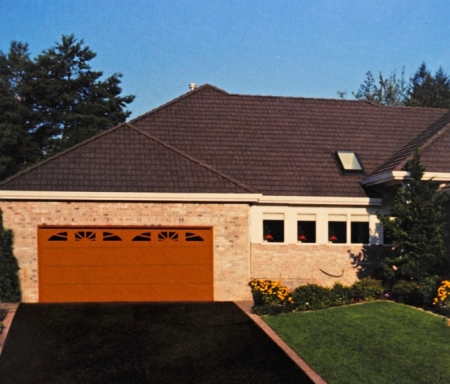Protect Your Driveway with Asphalt Sealant
To protect your driveway from the elements, invest in an asphalt sealant that will keep dirt, moisture, and cracks away. In fact, if your driveway is in disrepair, it’s not a lost cause at all. It’s a pretty easy fix.
What is Asphalt Sealant?
Asphalt sealant is an effective solution for protecting asphalt surfaces, such as parking areas, streets, and for the homeowner, driveways.
A mix of sun, moisture, and temperature can lead a driveway to expand, contract, and pull apart. Yet a simple sealant can help it withstand such punishment. When considering this investment, think curb appeal and your home’s overall value.
Yes, It’s Sealant – But It Looks Great
Looking at your driveway, you may think that it looks perfectly fine. However, it’s not about the here and now. Just like car maintenance, action isn’t taken for what has happened, but what could happen. In the case of an asphalt driveway, this generally means costly repairs.
Keep in mind that asphalt is a flexible product. Once laid down, it will indeed change according to its environment. For example, ultraviolet rays from the sun will dry out asphalt, causing the surface to gray and for tiny alligator cracks to appear. If not addressed, these seemingly harmless cracks can turn into troublesome potholes.

Coal Tar or Asphalt-Based Sealant
Applying asphalt sealant can be done by yourself or by a professional. Note that there are two types of sealants to choose from: coal tar or asphalt-based.
All driveway sealers are water-based emulsions containing water, latex, polymers, clay fillers, and additives. You can then choose between sealants made from coal tar or asphalt. While the latter is more environmentally friendly, the former is known for its durability, oil-resistance, and affordable cost. As a result, coal tar sealants remain the more popular choice.
Another consideration is plain vs. filled sealers. In the latter’s case, the sealer contains sand, perfect for filling in cracks and holes. However, depending on the condition of your driveway when you seal it, a filled sealer may not be necessary.
FAQs About Asphalt Sealant
How often should you seal your driveway?
Manufacturers recommend resealing a driveway once every two or three years. If you’re doing in yourself, you can save up to 65%. Be sure to review the entire project before taking it on though. As with anything DIY, you want to do it right the first time. Mistakes can turn costly in a hurry.
How do the elements affect asphalt sealers?
Driveways help beautify the home, creating a natural extension from the road to your garage. It’s curb appeal at its most basic. It’s also an investment that needs protection — from being driven on, a game of basketball, and most of all, from the elements.
Ice, snow, heat, and rain all have an impact on asphalt. From heat that swells the surface to the winter cold that contracts it, asphalt has a tendency to “crack” under such pressures. Once the oxidation process begins, it’s not easy to reverse. However, it can be halted. A sealant can help it better absorb such fluctuations.
While sealing the driveway is a good idea for all homeowners, for those who live in areas of extreme weather (such as the south, northeast, or desert areas), it’s a must. Indeed, asphalt sealant is the perfect example of a small investment today that should yield considerable savings in the future.